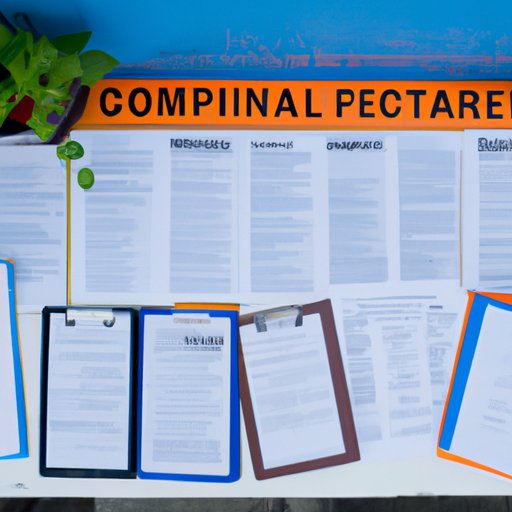Introduction
A Certified Financial Planner (CFP) is a professional designation that signifies expertise in financial planning. The CFP certification is awarded to individuals who have completed specific educational, examination, experience and ethics requirements as outlined by the Certified Financial Planner Board of Standards. Becoming a CFP can be a rewarding and beneficial career choice, as it provides access to a wide range of opportunities and resources.
Research and Understand the Certification Requirements
Before beginning the process of becoming a CFP, it’s important to understand the requirements of the CFP Board. According to the CFP Board, these requirements include:
- Complete college or university-level coursework in financial planning, taxes, retirement planning, investments, estate planning, risk management, and insurance.
- Pass the CFP Certification Examination.
- Gain three years of full-time financial planning experience.
- Adhere to the CFP Board’s Code of Ethics and Professional Responsibility and Financial Planning Practice Standards.
It’s also important to understand the time commitment needed to become a CFP. Depending on the individual, the process can take anywhere from two to five years. It’s important to remember that this is an ongoing commitment, as CFPs must complete continuing education credits every two years to maintain their certification.

Find an Accredited Program and Enroll
Once you’ve researched and understood the CFP Board’s requirements, you’ll need to find an accredited program that meets those requirements. There are many programs available, both online and in person, so it’s important to do your research and choose the one that best fits your needs. When researching potential programs, consider the cost, the quality of the program, and whether or not it meets the CFP Board’s requirements.
Prepare for the Exam by Studying and Practicing
The CFP Certification Examination is a rigorous exam that covers a wide range of topics. To prepare for the exam, it’s important to learn the material through textbooks and other online resources. Additionally, it’s beneficial to take practice tests and quizzes to ensure that you’re prepared. Developing a study schedule can help you stay organized and focused while preparing for the exam.

Take the Required Courses and Pass the Exams
Once you’ve studied and practiced for the exam, it’s time to take the courses and pass the exams. To meet the CFP Board’s educational requirement, you must complete six college-level courses in financial planning. After completing the courses, you must pass the CFP Certification Examination. This exam consists of two parts, the CFP Certification Knowledge Exam and the CFP Certification Professional Conduct and Regulation Exam.

Earn Professional Experience and Networking Opportunities
In order to become a CFP, you must gain at least three years of full-time financial planning experience. During this time, it’s important to network with other financial professionals and participate in professional organizations and conferences. These activities will provide valuable insight into the field and help build relationships that may be beneficial in the future.
Complete Additional Education and Training
To maintain your CFP certification, you must complete at least 30 hours of continuing education credits every two years. You can obtain these credits through a variety of educational programs, webinars, and other activities. Additionally, you may choose to pursue advanced designations or certifications to further your knowledge and skills.
Submit an Application, Fees, and Documentation for Final Approval
After completing all of the requirements, you must submit an application, fees, and supporting documentation to the CFP Board for final approval. Once approved, you will receive a certificate of completion and be able to use the CFP designation in your professional marketing materials.
Conclusion
Becoming a Certified Financial Planner (CFP) is a challenging but rewarding process. It requires dedication, research, education, practice, exams, experience, and more. By following the steps outlined above, you can become a CFP and enjoy the many benefits that come along with it. These benefits include access to a wide range of opportunities and resources, as well as the respect and recognition that comes with the CFP designation.
(Note: Is this article not meeting your expectations? Do you have knowledge or insights to share? Unlock new opportunities and expand your reach by joining our authors team. Click Registration to join us and share your expertise with our readers.)
